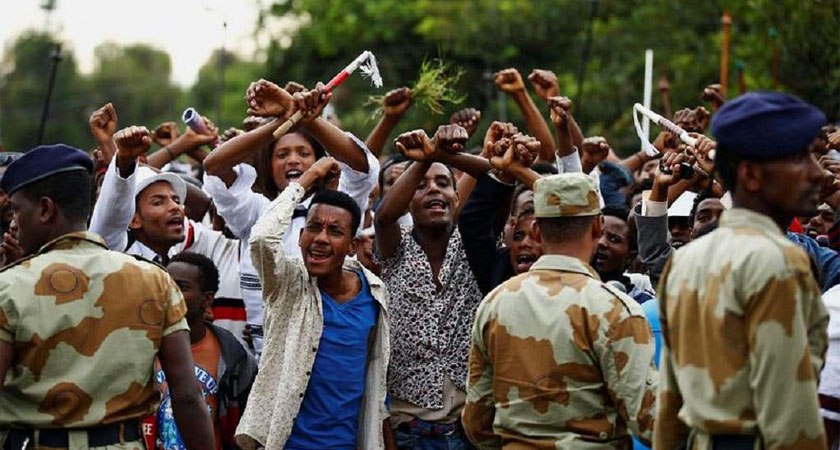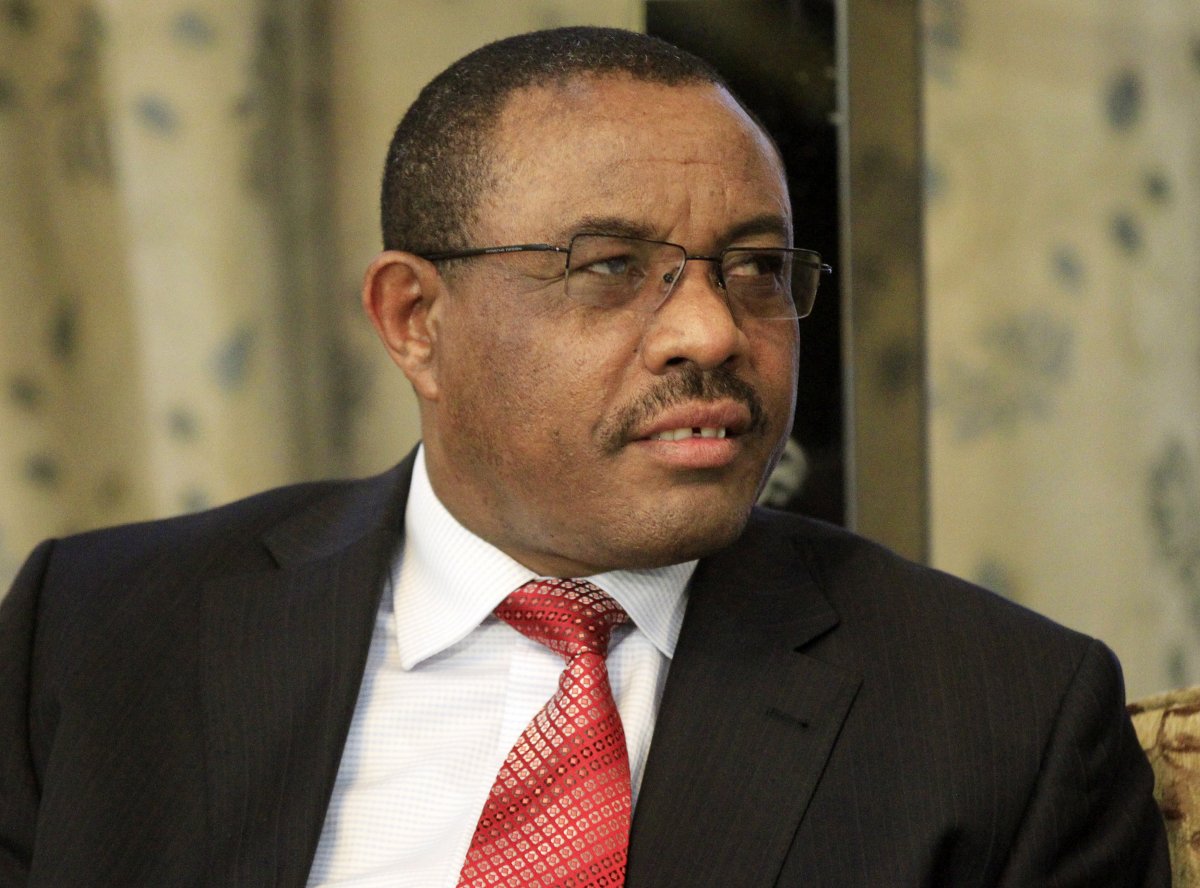Ethiopia declared a state of emergency on Friday after Hailemariam Desalegn, the Ethiopia prime minister on Thursday, February 15, 2018, announced his intention to step down amid a political crisis in the horn of Africa country.
The ruling Ethiopian People’s Revolutionary Democratic Front, EPRDF coalition’s council met on Friday, February 16, 2018, and decided to impose emergency rule, the state-run Ethiopian Broadcasting Corporation said. The announcement did not say how long the rule would be in place.
The government has been under pressure because of continuing street protests.
In recent weeks it has released hundreds of prisoners including opposition politicians but the protests have shown no sign of ending.
On Thursday, Hailemariam said he had made his decision to stand down in the hope that it would help end the years of unrest and political upheaval.
“I see my resignation as vital in the bid to carry out reforms that would lead to sustainable peace and democracy,” Hailemariam said.
The political demonstrations in Ethiopia began in Oromia in November 2015. Protests later sprung up in the Amhara region.

The council “came to the conclusion that imposing emergency rule would be vital to safeguarding the constitutional order of our country”, it said. Further details are expected to be given by the defense minister on Saturday morning.
An opposition leader said earlier on Friday the ruling coalition had lost its authority and all parties must help map the country’s future.
Mulatu Gemechu, deputy secretary of the opposition Oromo Federalist Congress, said Ethiopia needed a completely new political system after years of unrest.
“Ethiopians now need a government that respects their rights, not one that keeps beating and killing them,” he told Reuters.
Rights advocates have frequently criticized Ethiopia’s government for mass arrests and long jail terms handed to political opponents and journalists.
The prime minister’s resignation followed a wave of strikes and demonstrations successfully demanding the release of more opposition leaders.
Read more at BBC







